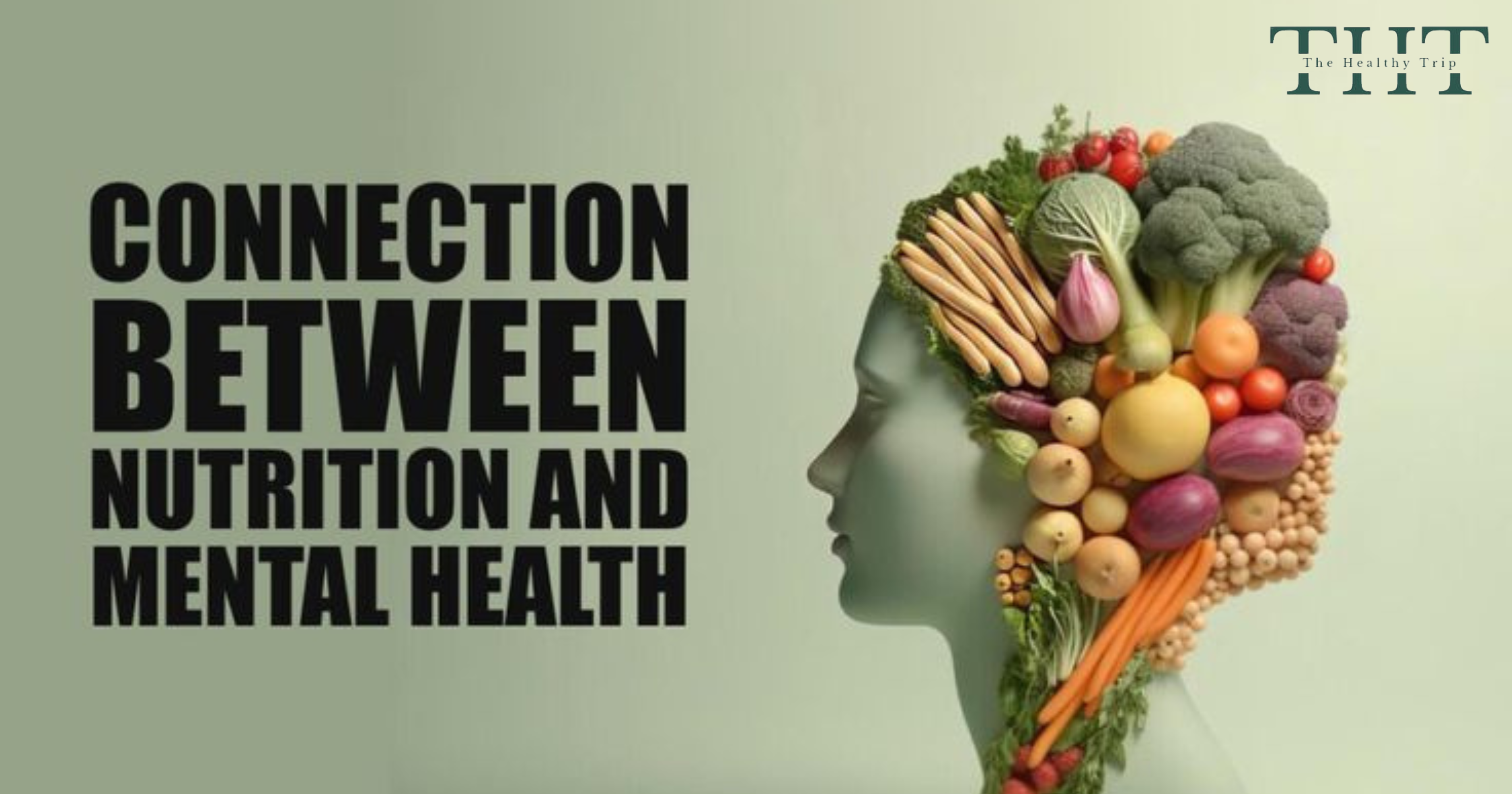In recent years, an increasing number of people are becoming aware of the deep connection between what we eat and how we perceive. Now, it’s not basically about maintaining a healthy weight or having enough energy to get through the day; our diet can drastically affect our mental condition as well. Whether you feel more relaxed after a nutritious meal or experience mood swings after consuming too much sugar, the hyperlink between good nutrition and mental health is simple. In this blog, we’ll explore how exclusive components of our weight loss program can affect our intellectual fitness, and discuss which foods are recognized for boosting mood and cognitive function.
How diet affects mental health
When we communicate approximately mental health, we’re referring to our emotional, psychological, and social well-being. It affects how we assume, feel and act, and plays a role in how we cope with stress, relate to others and make choices. While many elements influence mental health—such as genetics, environment, and lifestyle choices—nutrition is one key thing that doesn’t get noticed on a regular basis.
1. The gut-brain connection
The gut-mind connection is one of the most fascinating discoveries of recent years. The gut is regularly referred to as the “2d brain” because it is home to tens of millions of neurons and has an instant line of conversation with the mind via the vagus nerve. This method of connection that the fitness of our gut can without delay affect our mental health.
When our gut is healthy, it facilitates the delivery of neurotransmitters such as serotonin, which is referred to as the “feel good” hormone. In fact, about ninety percent of serotonin is made in the gut. A healthy gut microbiome (the community of bacteria that resides in our gut) is critical to producing sufficient amounts of serotonin and other critical chemicals that regulate mood and anxiety levels.
On the other hand, a dangerous gut can cause inflammation, which is associated with despair and anxiety. Poor gut health can also affect how we absorb nutrients, leading to deficiencies that can similarly affect mental well-being.
2. Blood Sugar Levels and Mood
Another way a weight loss program affects mental health is through blood sugar levels. When we eat, our body breaks down food into glucose, which is the main source of energy for our mind. Stable phases of blood sugar are important for maintaining a stable mood.
When we eat excessive amounts of sugar or refined carbohydrates (such as white bread and pastries), it causes the rapid rise in blood sugar seen in the crash. This roller coaster effect can cause mood swings, irritability and even anxiety. On the other hand, eating foods with a low glycemic index (GI) — which include whole grains, bottom line, and vegetables — helps keep blood sugar levels stable and promotes better temperature regulation.
3. Nutrient deficiencies and mental health
Some vitamins play a key function in brain properties and intellectual ability. For example, omega-three fatty acids, which can be found in fatty fish such as salmon, are crucial for brain health and have been shown to alleviate symptoms of melancholy. B vitamins, especially B12 and folic acid, are also important for mental health because they help produce neurotransmitters and regulate mood.
Deficiencies in these and other important vitamins can lead to mental health problems. For example, nutritional D loss has been associated with despair, especially in people living in areas with limited daylight. Similarly, low levels of iron can cause fatigue and mood disorders.
Foods that improve mood and cognitive function
Now that we’ve discussed how a weight reduction plan affects mental health, let’s look at some specific components that could be considered to boost temperament and cognitive abilities. Including these foods in your weight reduction plan can help you direct your intellectual being and improve your average standard of living.
1. Fatty fish
Fatty fish such as salmon, mackerel and sardines are rich in omega-3 fatty acids, which may be essential for brain health. Omega-3s help build and repair brain cells and have been shown to reduce inflammation and improve mood. Studies have found that people who eat more omega-3 are much less prone to melancholy and anxiety.
If you’re not a fan of fish, you can get extra omega-3s from plant sources like flaxseeds, chia seeds, and walnuts.
2. Dark Chhocolate
Good news for chocolate fanatics: dark chocolate can actually boost your temper! Dark chocolate contains compounds called flavonoids, which have been shown to improve brain function and reduce symptoms of depression. In addition, it stimulates the production of endorphins, which can be natural mood boosters in the body.
However, it is essential to choose dark chocolate with at least 70% cocoa content and eat it sparingly. Too much sugar could have the opposite effect and lead to mood swings.
3. Fermented foods
As we mentioned earlier, gut health plays a vital role in intellectual fitness. One satisfying method to maintain a healthy gut microbiome is to eat fermented foods such as yogurt, kefir, sauerkraut, kimchi, and miso. These ingredients include probiotics, which can be beneficial bacteria that help balance the gut microbiome.
A healthy gut microbiome has been linked to the law of higher mood and reduced symptoms of hysteria and depression. If you are not a fan of fermented ingredients, you can also take a probiotic supplement.
4. Berries
Berries like blueberries, strawberries and blackberries are full of antioxidants that protect the mind from oxidative stress and irritation. In addition, they have an excessive content of vitamin C, which makes it easier to relieve tension and improve mood.
Studies have shown that those who consume extra antioxidants have lower levels of melancholy and tension. In addition, berries are low in energy and represent a first-class healthy snack.
5. Leafy vegetables
Leafy greens like spinach, kale, and Swiss chard are some of the most nutrient dense foods you can eat. They are rich in folate, a B nutrient that helps provide mood-regulating neurotransmitters like serotonin and dopamine.
A weight-reduction plan high in leafy vegetables was associated with a reduced risk of despair and cognitive decline. These vegetables are also high in fiber, which helps gut health and stabilizes blood sugar levels.
6. Nuts and seeds
Nuts and seeds are superb sources of healthy fats, protein, and fiber, all of which assist brain health. They’re also rich in magnesium, a mineral that has been shown to reduce signs of hysteria and melancholy.
Walnuts, mainly, are a fantastic source of omega-three fatty acids, even as almonds are excessive in vitamin E, an antioxidant that protects the brain from oxidative strain. Adding a handful of nuts and seeds for your diet can help help intellectual properly-being.
7. Whole Grains
Whole grains like oats, quinoa, and brown rice are complex carbohydrates that offer a consistent source of energy for the mind. They’re additionally wealthy in B vitamins, which help to alter temper and enhance cognitive feature.
Unlike delicate carbohydrates, whole grains have a low glycemic index, which means they don’t reason speedy spikes in blood sugar ranges. This enables to stabilize temper and save you power crashes.
8. Avocados
Avocados are rich in healthful fat, mainly monounsaturated fats, which support mind fitness. They’re additionally excessive in potassium, which enables to modify blood stress and reduce strain.
In addition, avocados comprise folate, nutrition K, and diet E, all of which aid cognitive feature and shield the brain from harm.
9. Eggs
Eggs are a outstanding supply of protein, which offers the building blocks for neurotransmitters. They’re also rich in choline, a nutrient this is vital for brain improvement and characteristic.
Choline enables to supply acetylcholine, a neurotransmitter that performs a key role in reminiscence and temper regulation. Including eggs for your food plan can assist assist cognitive characteristic and intellectual well-being.
10. Green Tea
Green tea is full of antioxidants, especially a compound referred to as L-theanine, which has been shown to lessen strain and promote rest. It additionally carries a small amount of caffeine, which can enhance cognizance and attention with out inflicting the jitters that come with espresso.
Drinking green tea regularly has been connected to better intellectual fitness and cognitive characteristic. It’s a high-quality alternative to sugary liquids and can be loved hot or iced.
Conclusion
The connection among vitamins and mental health is clear: what we eat has a profound impact on how we experience. By making aware food picks and along with nutrient-rich ingredients in our weight loss plan, we can assist our intellectual well-being and enhance our common best of existence.
While it’s vital to experience treats sparsely, specializing in a balanced eating regimen that consists of lots of fruits, vegetables, whole grains, and healthy fat can help to stabilize temper, reduce signs and symptoms of hysteria and depression, and guide cognitive feature. Remember, small modifications could make a huge difference—so start with the aid of incorporating some of these mood-boosting ingredients into your day by day routine and notice how they can enhance your intellectual health.










